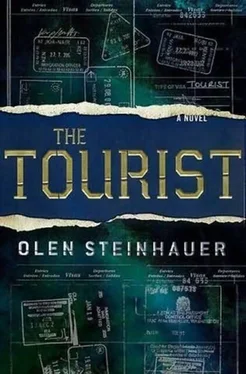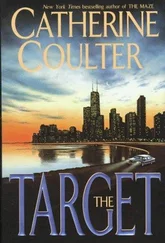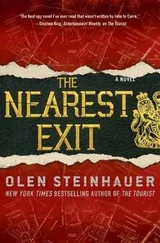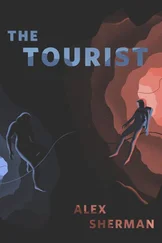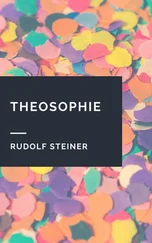Tripplehorn had given himself three possible entrances in three different rooms. Milo climbed the stairs and waited on the landing, squatting to make a smaller target.
From his position, he could hear the Tourist climb into the house, but wasn't sure which window he was using. It didn't matter. However he'd entered the house, he would have to use the stairs to reach Milo.
For three minutes, he only heard footsteps and doors opening suddenly. No one appeared at the bottom of the steps. Tripplehorn was searching the first floor before continuing to the next. Finally, he heard a high voice with an indeterminable accent say, "You'd better come down here."
"Why should I, Tripplehorn?"
A pause. "That's a funny name. Wish I knew who it was."
"It's me. Milo Weaver. I run the European desk."
"Don't know who you're talking about."
"I used to go by Charles Alexander."
Another pause, then a whisper that might have been Shit. Tourists had no qualms about killing other Tourists-this, in fact, was always a possibility-but Einner had been kind enough to point out that the name Charles Alexander had made the rounds.
"Who sent you?" asked Milo, the hand on his pistol sweaty now.
"You know who runs me."
"It used to be that man in the front yard."
"Grainger?" said the Tourist. "He's given few orders recently."
Milo's eyes were damp, so when Tripplehorn threw himself past the stairs, firing upward, his reaction was delayed. The Tourist shot blindly, loud bullets drilling into the upper steps, and Milo shot back twice, but too late. Tripplehorn disappeared on the other side of the stairs.
"You've got no position," Milo called. "Just get out of here."
"I'm patient."
Milo took a breath and stood slowly "You've got ten minutes until the mailman comes. You can't be patient." As he spoke, he took two steps down, feet by the wall to avoid creaks.
"I'll kill the postman, too," said Tripplehorn.
Milo was five steps down; ten more to go. "How's Fitzhugh going to explain that away? I doubt you're supposed to kill civilians."
Another pause. Milo stopped. Tripplehorn said, "If I did leave, you know I'd still be waiting out there."
Milo couldn't keep moving and speaking at the same time; Tripplehorn would hear his voice nearing. He said, "And what would you do? Shoot me while the cops are here, looking at the body? Come on, Tripplehorn. It's over. You know it."
"If you are who you say you are, then you know I can pull it off."
As he said those words, Milo descended two quick steps. He didn't answer.
"If you are Alexander, you know that failure isn't an option." Two more steps. Now he was six from the bottom. That would do. "Alexander? You still with me?"
With his arm extended, the pistol was only three steps from the corner. Behind it, Tripplehorn said, "Well, maybe you're right. Maybe I should just go with half the job done," and then launched himself out into the open, his gun raised high so he wouldn't again shoot too low.
By the time he got off his second, wild shot, Milo had put a bullet in his chest, knocking him backward. He dropped and slid against the front door, leaving a smear of blood. His arm was still out, clutching his pistol, and he was blinking up at Milo.
"Shit," he whispered, gurgling. "You got me."
"You should've worn a vest."
Tripplehorn's hunting jacket was drenched now, making the darkand-light-green design a little more monochrome. Milo kicked the pistol from his hand; it slid into the living room. He squatted close to Tripplehorn's head, remembering that face from the Corso Sempione, sitting across from the Tiger, giving the assassin a bag of money and a shot of HIV. "Tell me who's running you," said Milo.
Tripplehorn coughed blood onto the hardwood floor. He shook his head.
Milo didn't have the heart to force it out of the man. He knew, or he believed he knew, that Terence Fitzhugh was running him. There was nothing else to say. He shot Tripplehorn in the forehead. He searched the corpse, taking his cell phone and the little automobile unlocker that he had so admired when Einner used it in Europe.
He left by the front door, continuing past Grainger's corpse and into the woods. There, he was sick. As he crouched in the leaves, he realized it wasn't the normal sickness that overcomes a person at the sight of death. It was the sickness of too much adrenaline and too little to eat. That troubled him even more than the deaths, that he was no longer reacting like a real human being.
He stared at his vomit in the grass. He was thinking and feeling like a Tourist now. Unbalanced.
Despairing over this, his Tourist side calculated the next step. He didn't even cringe from it. He wiped his mouth with the back of his hand and returned to the house.
Five minutes later, from behind the shattered living room window, he clutched Grainger's car keys and watched the little mail truck bounce over ruts in the driveway until it had a direct view of Grainger's body. It stopped, and a fat man in a white uniform climbed out. He approached, halving the distance to the corpse, then turned and ran. He got into his truck, turned it around in a cloud of dust, and roared off.
Ten minutes, max.
Milo opened the front door and heaved Tripplehorn's body, now wrapped in Hefty bags, down the front steps, past the corpse, and to Grainger's Mercedes. He put Tripplehorn into the trunk, then got behind the wheel. He drove fast to the main road, then turned right, toward the mountains, as the low whine of police sirens grew somewhere behind him.
He'd found a good dropping point in the upper reaches of Route 23 when Tripplehorn's phone buzzed silently on the passenger seat, private number. On the fourth ring, he picked up but said nothing.
Fitzhugh said, "The American handed Leamas."
Milo paused, knowing it but unsure. With an accentless voice, he whispered, "Another cup of coffee.”
“Is it done?”
“Yes.”
“Both?”
“Yes."
"No trouble?”
“None."
A sigh. "Good. Take some time off. I'll be in touch." Milo hung up, remembering what that go-code had come from. The Spy Who Came in from the Cold:
The American handed Leamas another cup of coffee and said, "Why don't you go back and sleep?"
If only I could, he thought.
There were three of them. They took shifts. The heavy one on the night-to-early-morning shift wore a mustache as if he hadn't heard the seventies were long past-this one, she christened George. Jake watched the house from around 6:00 a.m. to 2:00 p.m.-he was a gangly fellow with no hair on top and a thick novel always pressed open against the steering wheel. The one out there now was Will-or he was until Monday afternoon, when she walked out to the red sedan with a huge cup of lemonade and learned his real name.
He watched through his impenetrable aviator sunglasses and straightened when he realized her destination. He jerked a pair of earphones from his head, reminding her of Milo and his iPod, and rolled down his window as she approached.
"Afternoon," she said. "Thought you might be thirsty."
She'd flustered him. "I'm, uh… I'm all right."
"Don't be a stiffy," she said, winking. "And take off those glasses so I can see your eyes. Can't trust someone without eyes."
He did so, blinking in the bright light. "Really, I don't think I should-"
"Please." She forced the cup through the window so that his choices were either to take it or let it spill in his lap.
He peered around, as if afraid of witnesses. "Thanks." She straightened. "You have a name?"
"Rodger."
"Rodger," she repeated. "Of course, you know my name already."
Embarrassed, he nodded.
"Just bring us the cup when you're done."
"I'll do that."
Читать дальше
Конец ознакомительного отрывка
Купить книгу
